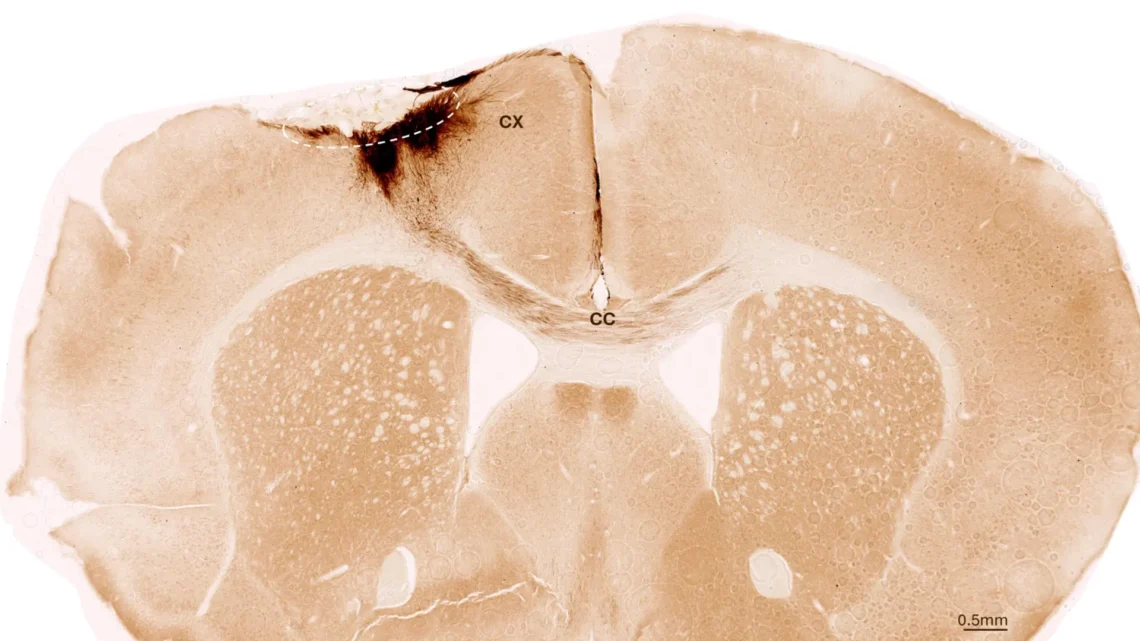Stem Cell Transplantation: A Potential Solution for Stroke Damage
Recent research from the University of Zurich indicates that stem cell transplantation may reverse damage caused by strokes. The study’s findings suggest significant benefits such as regeneration of neurons and the restoration of motor functions, representing a pivotal advancement in treating brain disorders.
Understanding Stroke Impact
Stroke affects one in four adults during their lifetime, with approximately half of those individuals experiencing lasting impairments such as paralysis or speech difficulties. These complications arise from irreversible damage caused by internal bleeding or oxygen deprivation, leading to the death of brain cells. Unfortunately, current medical therapies do not address the repair of this damage. As Christian Tackenberg, Scientific Head of the Neurodegeneration Group at the University of Zurich (UZH) Institute for Regenerative Medicine, emphasizes, “It is essential to pursue new therapeutic approaches to enable potential brain regeneration after diseases or accidents.”
Role of Neural Stem Cells
Neural stem cells possess the capability to regenerate brain tissue. In two comprehensive studies led by Tackenberg and postdoctoral researcher Rebecca Weber, in collaboration with Ruslan Rust’s group at the University of Southern California, it was discovered that neural stem cells not only develop into new neurons but also stimulate other regenerative processes. “Our findings indicate that neural stem cells can actively participate in the repair and regeneration of brain tissue,” Tackenberg asserts.
Research Methodology
The studies utilized human neural stem cells, which can differentiate into various cell types in the nervous system. These stem cells were derived from induced pluripotent stem cells, which can be created from normal human somatic cells. The researchers induced permanent stroke conditions in genetically modified mice that were designed to accept human stem cells, closely mimicking human stroke manifestation.
After one week, the team transplanted the neural stem cells into the damaged brain area. They employed various imaging and biochemical techniques to monitor the outcomes over five weeks. “We observed the survival of the transplanted stem cells and their transformation into functional neurons that communicated with existing brain cells,” Tackenberg explains.
Evidence of Brain Regeneration
The researchers identified additional markers of regeneration, including the formation of new blood vessels, a reduction in inflammatory responses, and enhanced integrity of the blood-brain barrier. “Our analysis exceeds the scope of other studies that primarily focused on immediate post-transplant effects,” Tackenberg states. Notably, stem cell transplantation in mice also mitigated motor impairments resulting from strokes, supported by an AI-assisted analysis of mouse gait.
Clinical Applications on the Horizon
As Tackenberg designed the studies, he aimed for future clinical applications in humans. Consequently, the stem cells were produced without animal-derived reagents, following a defined protocol developed in collaboration with the Center for iPS Cell Research and Application (CiRA) at Kyoto University. This approach ensures greater compatibility for therapeutic uses in humans. The researchers also discovered that delaying stem cell transplantation by one week post-stroke yielded better results, potentially streamlining therapeutic procedures in clinical settings.
Despite these promising findings, Tackenberg cautions that further work is required. “We need to minimize risks and simplify potential applications for humans,” he remarks. His team is collaborating with Rust to develop a safety switch system that prevents uncontrolled stem cell growth within the brain. Moreover, they are innovating delivery methods, including endovascular injection, which may prove more practical than traditional brain grafts. Initial clinical trials utilizing induced stem cells for treating Parkinson’s disease are already underway in Japan, and Tackenberg suggests that stroke could soon be targeted for similar clinical trials.
Key Health Takeaway
The research conducted by the University of Zurich highlights the potential of stem cell transplantation in reversing the effects of stroke, paving the way for innovative therapeutic approaches aimed at brain regeneration and recovery.





